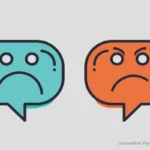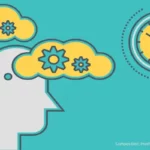
We are children of our time. It is practically impossible to escape its influence. Society – whether we like it or not – “forces” us through more or less subtle mechanisms to share its norms and ways of doing things under pain of social exclusion. However, “Our time is an age of frustration, anxiety, agitation and addiction to narcotics,” wrote the philosopher Alan Watts to alert us to the greatest addiction of modern times and the terrible danger that lies in wait if we fall into it.
Homo Consumens subjected to the illusion of happiness
“This way of drugging ourselves is called our high standard of living, a violent and complex stimulation of the senses, which makes us progressively less sensitive and, thus, more in need of an even more violent stimulation. We long for distraction, a panorama of sights, sounds, emotions, and excitement in which as many things as possible must be piled up in the shortest time possible.
“To maintain that level, most of us are willing to endure ways of living that consist primarily of boring jobs, but provide us with the means to seek relief from boredom in frenzied and expensive intervals of pleasure.
“Modern civilization is, in almost all aspects, a vicious cycle. It has insatiable appetites because its way of life condemns it to perpetual frustration. The root of that frustration is that we live in the future, and the future is an abstraction.
“The perfect subject for the purpose of that economy is the person who continuously listens to the radio, preferably portable devices that can be carried everywhere. His eyes stare relentlessly at the television screen, the newspaper, the magazine, maintaining a kind of orgasm without release.
“Everything is manufactured in a similar way to attract without giving satisfaction, to replace all partial gratification with a new desire.
“This stream of stimulants is designed to produce yearnings for the same object in ever greater quantity, albeit more loudly and quickly, and those desires force us to do a job that we are not interested in because of the money it produces… to buy more luxurious radios, brighter cars, flashier magazines, and better television sets, all of which will conspire to persuade us that happiness is around the corner as long as we buy one more item.
“The miracles of technology make us live in a hectic and mechanical world that violates human biology, and allows us to do nothing more than pursue the future with increasing speed.”
A violent stimulation of the senses to escape from ourselves
Watts refers to the constant search for experiences, in a frantic way, to enjoy them quickly and move on to the next. Take a photo without enjoying the site to quickly move on to the next scene, of which we will not remember anything either. Buy to use for a limited time, to throw away and buy again. Binge on tv series to quickly move on to the next trendy audiovisual production …
The constant stimulation of the senses becomes an addiction because it keeps us in a state of alert in which there is no room to be alone with ourselves. That stimulation becomes a drug that we resort to to avoid thinking. Keeping busy doing something becomes an avoidant coping strategy that allows us to keep worries at bay.
However, maintaining that frenetic pace of activity prevents us from connecting with ourselves, so that we do not solve our problems. Instead, we imbibe ourselves with an alienating lifestyle in which we become mere consumers of products that promise illusory and ephemeral happiness. As a result, when that euphoria wears off, we need a new “dose” of products.
To maintain that standard of living we need to work more, many times in jobs that do not satisfy us or that even generate discomfort. If we do not realize this vicious circle, we can run the risk of living trapped in that flow of stimuli and products all our lives, wasting the opportunity to connect with ourselves and find a vital meaning beyond the material. The decision is up to us.



